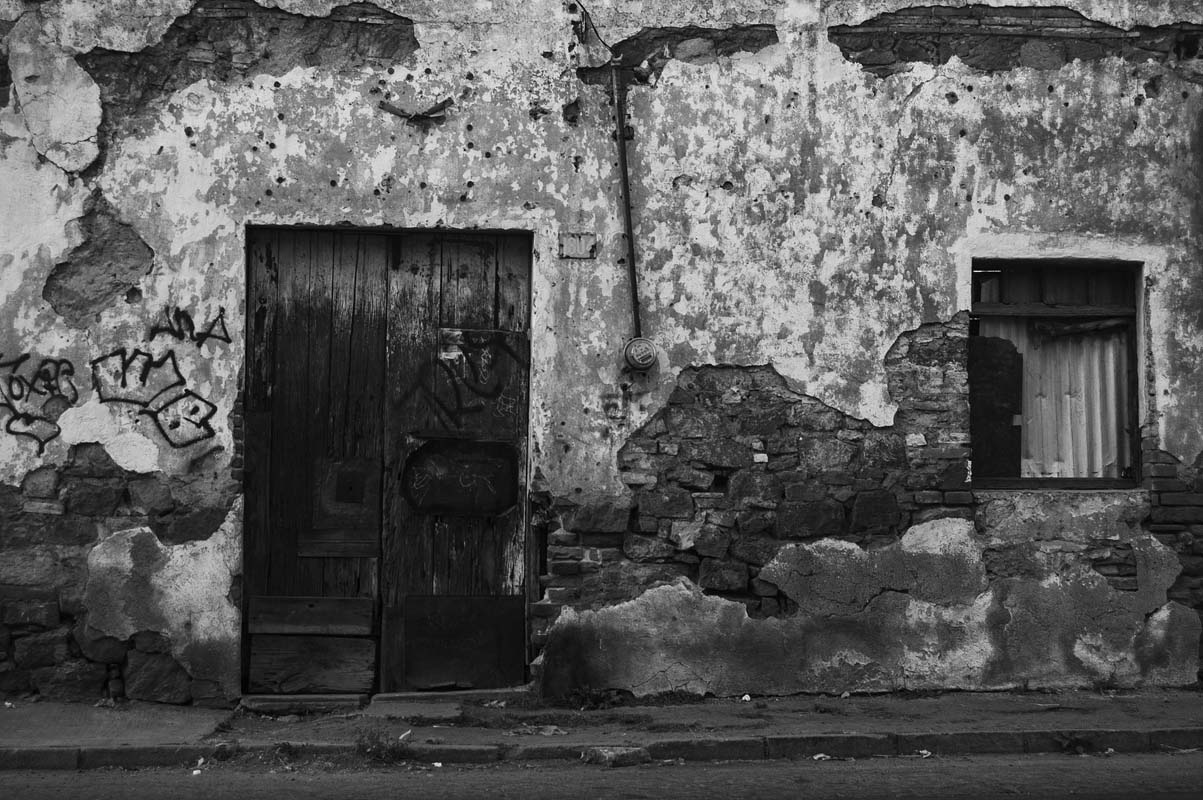Susana

The men from Rancho Chacuiloca knocked on Susana’s door bearing the news of her husband, Santiago.
In an attempt to defend his friend from a grave accusation made by the Federales, he received a blow to the head with a .30-30 rifle.
It was the 13th of November, 1913, three years into the Mexican Revolution; Zacatecas had become the battlefield between the agraristas – land reformers who believed that the land belonged to those who labored it – and the 34-year dictatorship of Porfirio Diaz. A bloody civil war would last seven more years.
At 26, Susana buried her husband and was left alone with her five children.
Weeks passed. One morning, Susana left her adobe one-room house to fetch water from a nearby well; she instructed her children to remain, under lock and key. Susana never returned. Doña Petra, Susana’s mother, received word that the soldiers had left the region, but had snatched her, taking her by the waist as she walked home and forcing her onto a horse.
Susana’s children were cared for by their grandmother, Doña Petra, until each of them was sent to live with different relatives.
Six years passed, Susana found her way back home with an infant in her arms but had left her soul behind.
Although Susana knew the whereabouts of her children, they remained with relatives as she attempted to start anew with the son that reminded her every day of her reluctant relationship with his father.
As she made her way through the streets of town making her daily food purchases from the vendors, voices rumored of her illegitimate son and how her charming beauty captured the men’s attention and menaced the women of the town. No one was willing to offer her work.
She found solace in memories. She summoned the nights when the neighboring ranchos and towns were never without fairs and fiestas. The wind and string ensembles lured the town folk to dance. Susana and Santiago were drawn by the music that called to them deep into their valley between el Teúl and Tepechitlán. As Susana wrapped her rebozos around her younger children much like the cornhusk around the tamales, she thought about the chotis she would dance with her husband up until the wee hours of the night. They left their children asleep – locked the door – and embraced each other as they walked toward the music.
About town, she offered her laundering services to families; many slammed the heavy wood door after cursing her to the devil. She was not deterred. A few households welcomed her services in exchange for tortillas and frijoles for the day and a few pesos.
Work became steady and made her days ordinary. As she carried her child on her back wrapped in a black and white cotton rebozo, she balanced a basket of laundry on her head and walked toward the river. She laid her son on a bed of broad, smooth leaves as she kneeled along the shore. Her curved back rocked back and forth as she pounded the smooth stone against the clothing extended atop a flat rock.
One day, a tall dark man followed her path to the river and admired her from afar, standing with his back to a tall tree. The sun was directly above when Susana finished folding the clothes that were spread on the bushes to dry. She wrapped her child on her back and balanced the basket of freshly laundered clothes on her head and headed into town.
He followed her until their steps paralleled each other and introduced himself as Santos. She hurried on, looking forward without a word, and gripped the basket rim more tightly. Susana had spied him once before along the river. Once they reached town, he bid her good-bye and disappeared into a dusty road. She was relieved that she had not responded to him.
As days went on, Santos continued, each time approaching one step closer to where she washed clothes. Each time he’d compliment her beauty or give her a wild flower. Months passed before she looked him in the eye and smiled and accepted his assistance with the basket. At the edge of town, they would part ways. She walked into town with a feeling of hope.
Torrential rains announced the end of the summer in 1920, making it difficult for Susana to do her work. She had back pain and nausea. Without work, she only had enough frijoles to feed her 15 month old son for the next couple of days and she desperately wanted to speak to Santos.
The next morning, at sunrise, Susana picked up the laundry from her patron’s house and made her way to the river with her toddler in tow and the basket on her head. Frequently, she paused to sniff a mint leaf to curb her nausea and give her back a rest, then went back to work looking out for Santos. As she set the clothes to dry on the shrubs, he appeared before her. Their eyes met.
In a whisper, she announced that she was with child. Santos embraced her. Then he rejected her.
“I cannot accept the responsibility of your carelessness. I am an honorable family man; a married man; the father of two.”
In the spring of 1921, another son, Pablo, was born.
* *
Tlaltenango, Zacatecas
Pablo was the last of her children to marry – three months after his 22nd birthday. He walked out of his sister Lola’s house where he and Susana had lived the last 10 years. Lola was Susana’s 2nd child. She was married, pregnant and rearing six children. She had buried two toddlers in recent years and was caring for her mother Susana who wanted nothing to do with an ordinary day.
Daily at dusk, an owl, perched on the avocado tree branch, guarded the entrance to her room accessible through the courtyard. Susana would shriek, “Here comes the old hag.” Its loud, sharp whistle made her uneasy; she pleaded with it to stop its laughter. With trepidation, her grandchildren entered her room to deliver her meals. Susana faced the wall with her arms extended; her long greying hair fell over her white cotton nightgown as she howled in a rage.
“Get out of here.”
Someone had put an evil spell on her, the family voices murmured.
Night fell. Susana paced the small room, stopping to fling the wooden chair. In a moment of calm, she’d stare out the window, gripping chunks of her hair and yanking it out as the owl remained perched on the avocado branch. Emilia, her 10-year-old granddaughter, was the only child that Susana would allow in; she stood by the door keeping Susana from being lured by the river spirits. The sleep spirit lulled Emilia to a slumber. Then the rooster crowed. Emilia startled, rose from the floor. Sunlight came through the doorway; the owl was gone and so was Susana.
The news of Susana’s disappearance spread quickly. Neighbors joined the family to search the Xaloco River nearby, up and down stream, until the owl was spotted on a mesquite. Huddled, rocking back and forth, Susana stood in a small, dark cave nearby glaring at the screeching owl.
Doña Lola- Emilia’s mom– gathered lanolin from lambs’ wool to cure the severed patches of scalp and the stomach sores her mother, Susana, developed. But she couldn’t rid her of the black lice that infested her body.
“The evil spell won’t go away.”
Susana’s body deteriorated. The priest was summoned to rid her of the evil within.
“There is no cure,” he told them.
She withered away in the spring of 1944. Doña Lola prayed the rosary over Susana’s body, supplicating the Virgencita.
* *
1966, Tlaltenango, Zacatecas
Twilight enveloped the valley. Doña Lola’s youngest daughter, now a teenager, walked past the locked and abandoned room toward the kitchen. While Carmen Alicia made tea, she wondered, as always, about the woman her siblings whispered about – the one who climbed walls like a spider; who was hexed with mal de ojo; the one under the owl’s watch.
Carmen Alicia made her way through the courtyard, carefully sipping her tea. The window to the room was now open and the light of a candle illuminated a shadow of an old woman sitting. She murmured undecipherable chants. Perhaps it was her mother praying. Then she heard coughing coming from another room. There, Carmen Alicia found her mother and asked if she had been praying in the bewitched room.
“No. It wasn’t me.”
An owl screeched in the distance.
“My mother’s spirit has returned.”

August 20, 2016










